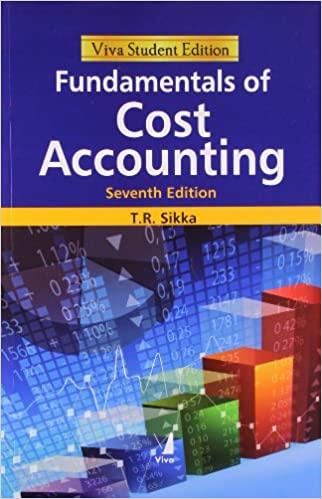Question
Javonte Co. set standards of 3 hours of direct labor per unit of product and $15.60 per hour for the labor rate. During October, the
Javonte Co. set standards of 3 hours of direct labor per unit of product and $15.60 per hour for the labor rate. During October, the company uses 18,000 hours of direct labor at a $284,400 total cost to produce 6,200 units of product. In November, the company uses 22,000 hours of direct labor at a $348,700 total cost to produce 6,600 units of product. AH = Actual Hours SH = Standard Hours AR = Actual Rate SR = Standard Rate (1) Compute the direct labor rate variance, the direct labor efficiency variance, and the total direct labor cost variance for each of these two months. Classify each variance as favorable or unfavorable. (2) Javonte investigates variances of more than 5% of actual direct labor cost. Which direct labor variances will the company investigate further?

Step by Step Solution
There are 3 Steps involved in it
Step: 1

Get Instant Access to Expert-Tailored Solutions
See step-by-step solutions with expert insights and AI powered tools for academic success
Step: 2

Step: 3

Ace Your Homework with AI
Get the answers you need in no time with our AI-driven, step-by-step assistance
Get Started


